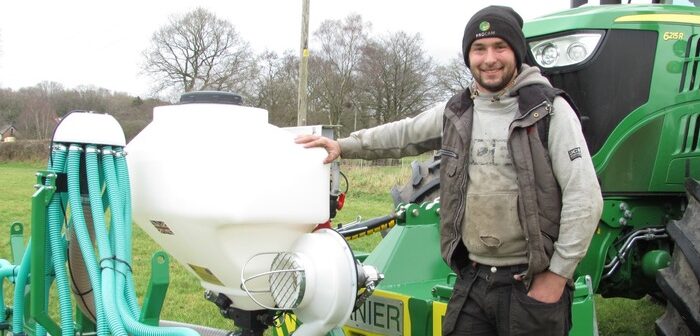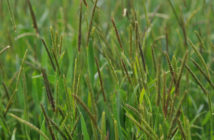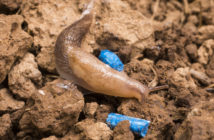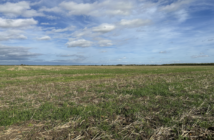Replacing an ageing, and often, unreliable farm-built nematicide applicator with the Terracast GR, an applicator specifically designed for precision placement of nematicide, starter fertiliser and cover crops has enabled Cheshire based potato farmer Zak Stanier to improve the accuracy of his previous system and reduce product wastage, but also widen potential use of the farm’s new applicator to include sowing cover crops and placing starter fertiliser.
Trading as F & TL Stanier, Mr Stanier – who annually grows 200-240ha of potatoes alongside (Uncle) Gary Stanier, purchased the Terracast GR granular applicator in February 2022, replacing a hybrid machine made from Horstine parts and equipment.
Mr Stanier says: ”The old applicator comprised four individual hoppers, all with their own metering systems, connected to one main drive shaft that was driven by a land wheel. Although performing acceptably in dry conditions, when used in wet or heavy soils the land wheel would often pick up additional layers of soil, increasing its width which led to over-application of product. There was no auto-shut off system either, which meant that nematicide was either being under or over-applied at the headland as the tractor made each turn.
Market driven
“As a competitive, family-owned potato business operating on mainly rented land, we have to be very market driven and keep a close eye on all our costs – including investment in any new machinery. However, we also realized that neither the accuracy, nor the overall reliability, of the farm-built machine where at the level they needed to be. The eventual decision to go with a Terracast GR that linked into the John Deere’s own ISOBUS control system to deliver a more even spread pattern of nematicide via a powerful air delivery system was really a ‘no-brainer’.
“With no special modifications required, we front mounted the Terracast GR on the John Deere 6215 with our Bed-tiller rear mounted for even-weight distribution. As we only require nematicide on approximately 30% of our fields, the Terracast GR can easily be uncoupled from the John Deere, with our Philip Watkins weight block remaining in place to maintain the correct overall weight balance.
“The Terracast GR is very compatible with the John Deere’s own guidance system so there was no requirement for us to utilize the Techneat electronic rate controller. The ISOBUS functionality also means we can now receive instant application data fed back live to the farm office, detailing when the nematicide was applied, the amount, and the total area applied making application recording effortless.
Easy to calibrate
“The new applicator is easy to calibrate and delivers granular nematicide into the furrows accurately, via a flexible number of fishtail outlets spread evenly across the full width of a 3.6m boom. The fishtails are currently positioned every 300mm providing double overlap and even distribution as we have enough outlets for an eventual move to a larger 5.4m boom.
“Auto-shut off at the headland, a significant problem under our old system, is now all done automatically, with the Terracast GR’s auto-shut off synchronized to the field boundaries already stored in the John Deere’s guidance system that has mapped all our fields. This takes all the guesswork away and the operator is free to concentrate solely on the positioning of the tractor as it makes the turn.
“Despite currently growing all our potatoes under a 2-bed system, the Terracast GR is already set up for our eventual move to a 3-bed system. To complete the set-up, we need only upgrade the machine’s existing 3.6m boom to a 5.4m width boom, adjusting the position of the 12 delivery outlets along the new boom to a 450mm spacing.
“Although the primary reason for investing in the Terracast GR was to improve the level of Potato Cyst Nematodes (PCN) control on a third of our fields, we were fully aware that the machine can also apply starter fertiliser or double as a seeder unit with minimal modifications. Having already successfully completed cover crop trials last year, we now aim to widen the use of the new applicator from Autumn 2024 to establish cover crops” concludes Mr Stanier.




